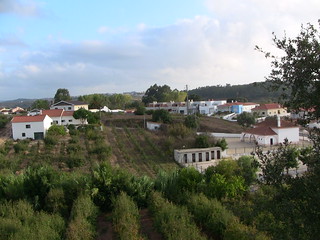
If you’re involved in any kind of project these days chances are you make use of Facebook in some way or another. If you don’t, a few clicks on the internet or a few pages in your local newspaper, and you’ll probably get hit with an article about how “you should” in order to reach “the people”. In the publishing world it is the same story multiplied by 1000, as the world’s largest social network site is considered the be all end all of doing anything online. If you’re not making full use of facebook, you’re somehow a failure or a fool. Why? Because in the publishing world it is all about the numbers, and if there’s one thing we’re told over and over again, facebook has the numbers.
But what real value do these numbers have? The truth that few want to admit, is that we don’t know. What proof is there that all those likes, and all the times your post gets shared on facebook, that these things amount to anything beyond a brief 2 sentences that are constantly being buried under the feeds of the insatiable scrolling machines we have all become. Companies pay a full time staff to control their social media presence, to keep an eye on the social networks and make sure they’re “talking about us.” Somewhere along the line of all of us going online, “talking about” something stopped meaning real conversations of any substance, and became the act of copy pasting without having to read or remember anything. Entire books and traveling guru’s (even more irritating versions of me) are dedicated and revered because they give institutions advice as to what they “should” be doing if they really want to be down with the social media thing.
We have lost and are now at risk of losing even more when it comes to real content, genuine thought, and meaningful understanding. When it is more important that you have a facebook page than it is to actually researching and writing articles; when its more important you go viral than actually capture the war criminal your video was about; when its more of a priority that your facebook page have lots of likes instead of real debate and discussion; that is the point where the world of journalism and media is proudly wrapped in a fog of stupidity. One where trends and expert tips are given way more credence than they deserve, and where original content is left in the dust. Somewhere along the line we stopped being original and authentic, and we became apostles of that iconic blue masthead that says “this is what matters, not your hard work or your unique individual creations, but your ability to do exactly as we say you should. Why? Because we have the numbers. And in today’s publishing/business world, numbers trump humanity. Over and over again.
(yes I realize you’re likely reading this from within facebook, but I look forward to after the rebellion, when even less of us will)
 I’ve spent the better part of this summer with senior citizens, especially those living in small town Portugal. They are the generation just barely hanging on, the same people who 20 years ago I would spend much of my summer with. They were the farmers, the housewives, the seamstresses, and the factory workers. They raised children, they emigrated to countries where there was work and hope, and then they came home to live among their farms and friends for those golden years as they awaited visits from grandchildren and for life to carry on.
I’ve spent the better part of this summer with senior citizens, especially those living in small town Portugal. They are the generation just barely hanging on, the same people who 20 years ago I would spend much of my summer with. They were the farmers, the housewives, the seamstresses, and the factory workers. They raised children, they emigrated to countries where there was work and hope, and then they came home to live among their farms and friends for those golden years as they awaited visits from grandchildren and for life to carry on.

 It is a formula that we decided decades ago makes sense and should therefore work. It is a recipe that for many people in the past decades, has worked to provide a decent life and what people often refer to as security as they look to the future. – You go to school, you do your training, and when you’re finished there will be a job for you somewhere, and it will be a job you want.
It is a formula that we decided decades ago makes sense and should therefore work. It is a recipe that for many people in the past decades, has worked to provide a decent life and what people often refer to as security as they look to the future. – You go to school, you do your training, and when you’re finished there will be a job for you somewhere, and it will be a job you want. I’m probably a very annoying person to deal with on a daily basis, especially when I’m doing my typical “big picture” speeches and appreciating the life I’ve carved out for myself knowing full well how many do not get to enjoy, travel, try… as I have. I’m not sure what turn of events, what influential person or piece of media that I ever heard/read/watched, that made me someone that continuously comes back to one conclusion: despite some slim odds and all the factors that could have played out differently, I have arrived (as have so many of us) at this point in my life doing things I love to do, having people in my life (near and far) that I’m honored to know, and in reasonably good shape as far as the essentials of life go. Although much of the world seems so busy and eager to move past these types of observations, just as quickly as someone might be about to click away from this text, I think the ability to see it – especially at difficult moments- is something that needs nurturing.
I’m probably a very annoying person to deal with on a daily basis, especially when I’m doing my typical “big picture” speeches and appreciating the life I’ve carved out for myself knowing full well how many do not get to enjoy, travel, try… as I have. I’m not sure what turn of events, what influential person or piece of media that I ever heard/read/watched, that made me someone that continuously comes back to one conclusion: despite some slim odds and all the factors that could have played out differently, I have arrived (as have so many of us) at this point in my life doing things I love to do, having people in my life (near and far) that I’m honored to know, and in reasonably good shape as far as the essentials of life go. Although much of the world seems so busy and eager to move past these types of observations, just as quickly as someone might be about to click away from this text, I think the ability to see it – especially at difficult moments- is something that needs nurturing.